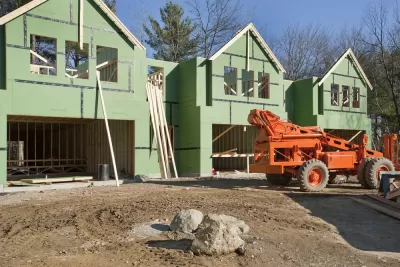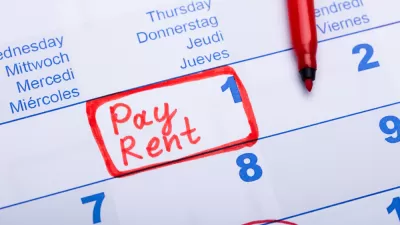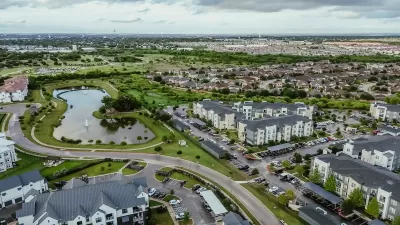An annual report from the Joint Center for Housing Studies (JCHS) reveals that a growing number of American households face housing insecurity and spiking costs of living.

Ahmad Abu-Khalaf reports on the latest The State of the Nation’s Housing report from Harvard’s Joint Center for Housing Studies (JCHS), which paints a grim picture of the U.S. housing market, particularly for renters and communities of color. “JCHS’ data show that in 2020, the nationwide share of cost-burdened households (those paying over 30 percent of their income for housing) rose 1.5 percentage points to nearly 30%; renters at all income levels are feeling the pinch, though Black households are disproportionately impacted.” In the first quarter of this year, rents rose by as much as 20 percent in some cities.
The report also highlights the rise in utility costs and the “historically low” availability of housing units, which put low-income households struggling to pay rent at even higher risk of eviction and displacement. The crisis is affecting greater numbers of middle-income earners, too: According to the report, “households earning between $30,000 and $45,000 saw the largest increase (4.2%) in the number of cost-burdened households.” Meanwhile, “The surge in the prices of gas, food, and other necessities has made matters worse, especially now that most emergency government supports have ended. The housing stock itself is in dire need of investment to meet the demands of a rapidly aging population and the threats posed by climate change.” The report recommends enhanced and continued federal rental assistance as one step to easing the crisis.
Other key findings:
- While homebuying accelerated, first-time buyers faced more obstacles, particularly after the hike in interest rates in the early part of 2022.
- Climate-induced disasters pose a growing risk to the stability of the housing market.
- Upgrades to existing housing stock are urgently needed to preserve older housing, meet accessibility needs, and improve energy efficiency.
The JCHS website includes the full report with many more insights, interactive maps, and detailed data sources. Read past Planetizen coverage of the report here.
FULL STORY: Four Key Findings From 2022 State of the Nation's Housing Report

Maui's Vacation Rental Debate Turns Ugly
Verbal attacks, misinformation campaigns and fistfights plague a high-stakes debate to convert thousands of vacation rentals into long-term housing.

Planetizen Federal Action Tracker
A weekly monitor of how Trump’s orders and actions are impacting planners and planning in America.

In Urban Planning, AI Prompting Could be the New Design Thinking
Creativity has long been key to great urban design. What if we see AI as our new creative partner?

Portland Raises Parking Fees to Pay for Street Maintenance
The city is struggling to bridge a massive budget gap at the Bureau of Transportation, which largely depleted its reserves during the Civd-19 pandemic.

Spokane Mayor Introduces Housing Reforms Package
Mayor Lisa Brown’s proposals include deferring or waiving some development fees to encourage more affordable housing development.

Houston Mayor Kills Another Bike Lane
The mayor rejected a proposed bike lane in the Montrose district in keeping with his pledge to maintain car lanes.
Urban Design for Planners 1: Software Tools
This six-course series explores essential urban design concepts using open source software and equips planners with the tools they need to participate fully in the urban design process.
Planning for Universal Design
Learn the tools for implementing Universal Design in planning regulations.
Gallatin County Department of Planning & Community Development
Heyer Gruel & Associates PA
JM Goldson LLC
City of Camden Redevelopment Agency
City of Astoria
Transportation Research & Education Center (TREC) at Portland State University
Jefferson Parish Government
Camden Redevelopment Agency
City of Claremont





























